
Lot 112
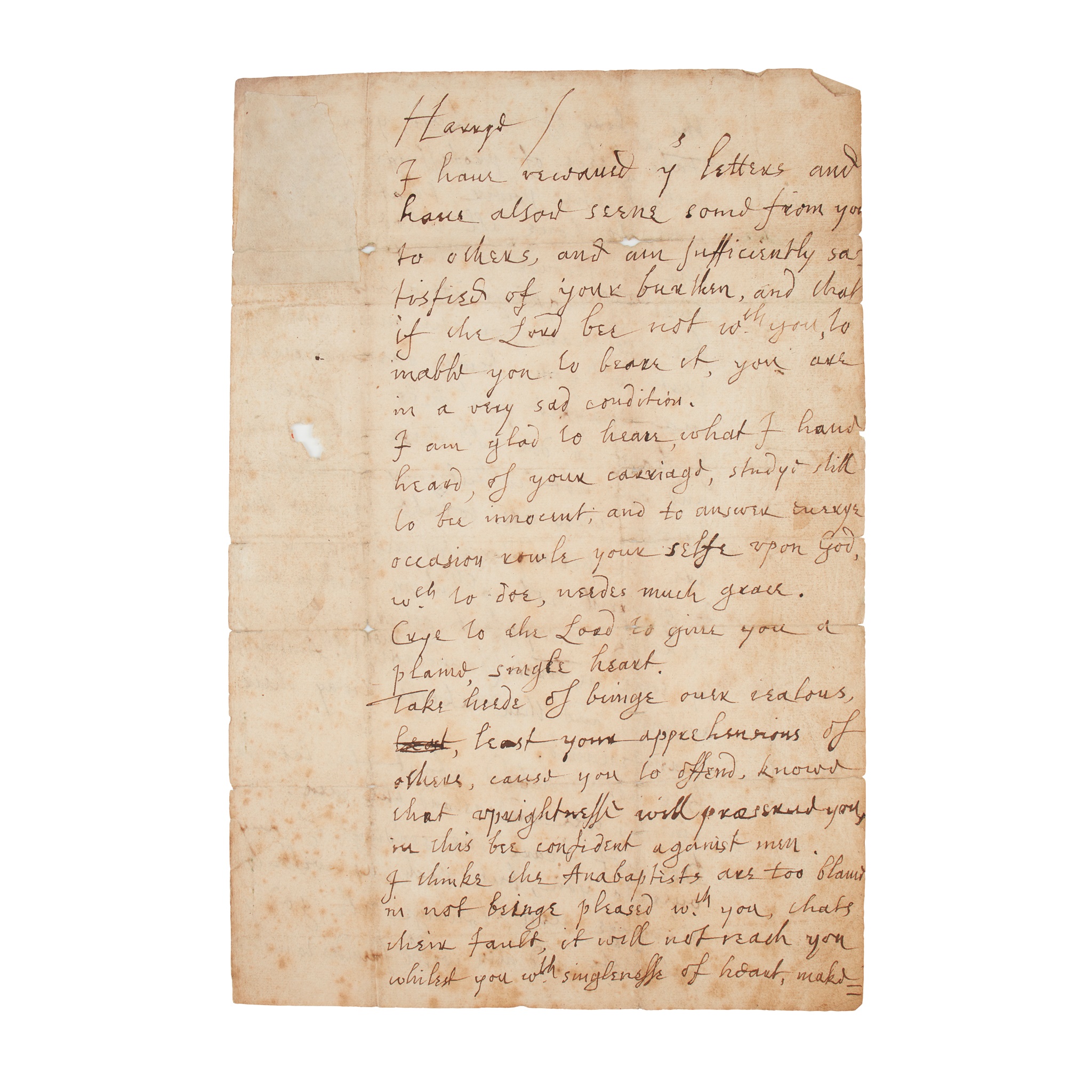
Cromwell, Oliver (1599-1658), Lord Protector of England, Scotland and Ireland
Autograph letter signed as Lord Protector to his son Henry Cromwell as commander-in-chief in Ireland, 21st April 1656
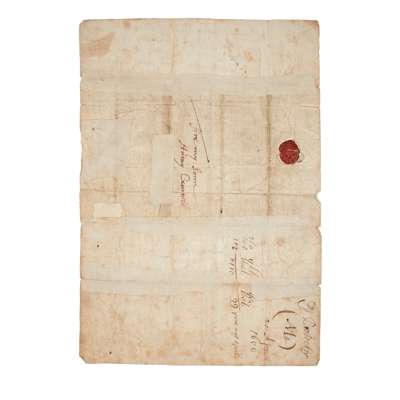
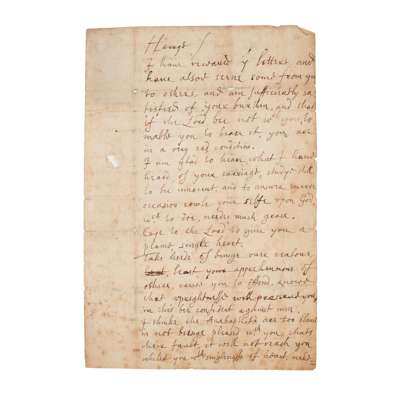
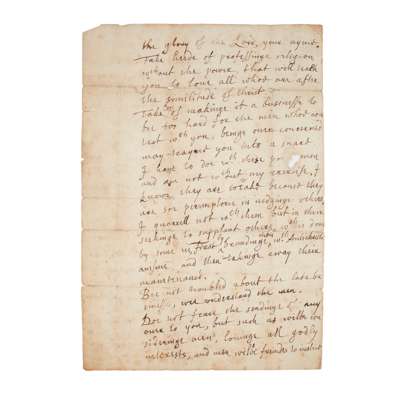
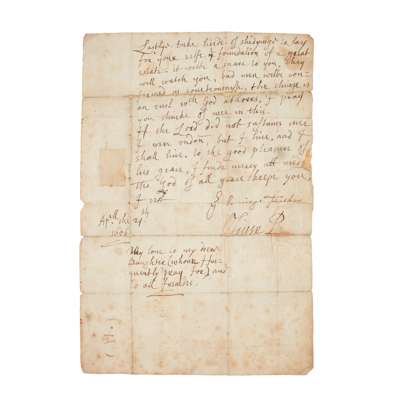


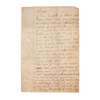
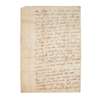
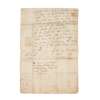
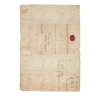
Rare Books, Manuscripts, Maps & Photographs
Auction: 21 September 2023 at 10:00 BST
Description
2 leaves (29.5 x 20cm), written on 3 sides, containing some 400 words in total, addressed to 'Harrye' at head, signed 'Oliver P' at foot and with postscript ('My love to my dear Daughter ...'), verso of second leaf with autograph address panel 'For my Sonn Harry Cromwell', red wax seal, endorsement ('Ld Protector, 21 Aprill 1656', with '(Me)' added in a contemporary hand), and later manuscript calculation
Footnote
Note: A remarkable and historically important letter of fatherly advice from Cromwell as lord protector to his son Henry (1628-1674) as commander-in-chief in Ireland, identified by Henry's modern biographer as one of 'the few surviving letters from Oliver Cromwell to his son over this period' (Peter Gaunt in ODNB), and a fascinating primary source for Cromwell's statecraft and the vexed history of Anglo-Irish relations.
Henry, the lord protector's only surviving son after Richard, was appointed major-general of the forces in Ireland in July 1655, though from the departure of his brother-in-law Charles Fleetwood in September 1655 until June 1659 he was also the country's de facto chief administrator. Setting out to crush opposition to the protectorate, his first objective was to break the hold which the Baptists had gained over the English army and the civil administration, rightly suspecting that Baptist beliefs often provided a front for republican sentiment; at the same time he sought to conciliate the established protestant community with a rule 'marked by moderation, civilianization, a return to some of the traditional forms, and a greater sensitivity to the needs of the "old protestants", whatever their former allegiance' (ibid.). In this strategy he encountered opposition from Fleetwood, who despite his return to England remained lord deputy of Ireland until 1657, and from the Irish council. By the summer of 1656, despondent at a perceived lack of support for his leadership, he wrote his father two letters of resignation, which were rebuffed.
The lord protector's advice in this instance is unlikely to have been what Henry wanted to hear. He does not deny the difficulty of Henry's situation, but counsels moderation in his dealings with the Baptists, warns him against the excessive accumulation of personal property, and amid conventional pieties strikes an uncharacteristically irenic note, urging his son to turn the other cheek:
'Harrye, I have receaved yr letters ... and am sufficiently satisfied of your burthen, and that if the Lord bee not with you, to enable you to beare it, you are in a very sad condition ... Crye to the Lord to give you a plaine, single heart. Take heede of being over zealous, lest your apprehensions of others, cause you to offend, knowe that uprightnesse will preserve you, in this bee confidence against men. I thinke the Anabaptists are too blame in not beinge pleased wth you, thats their fault, it will not reach you whilst you wth singlenesse of heart, make the glory of the Lord, your ayme. Take heede of professinge religion wthout the power, that will teach you to love all whoe are after the similutude of Christ. Take [care] of makinge it a businesse to bee hard for the men whoe contest wth you, beinge over concerned may trayne you into a snare ... Lastlye take heede of studyinge to lay for your selfe ye foundation of a great estate. It wilbe a snare to you, they will watch you, bad men wilbe confirmed in covetousnesse, the thinge is an evil wch God abhors. I pray you thinke of mee in this ...'
Henry's rule in Ireland was not without its successes, but did not survive the collapse of the protectorate. At the Restoration he was included in the general pardon and retained a considerable portion of his Irish and English estates, dying on ancestral home ground in Cambridgeshire in 1674.
Published: Miscellany of the Irish Archaeological Society (Dublin, 1846), volume 1, pp. 125-7; The writings and speeches of Oliver Cromwell, ed. W. C. Abbott and C. D. Crane, (Cambridge MA, 1937-47), volume 4, p. 416.









